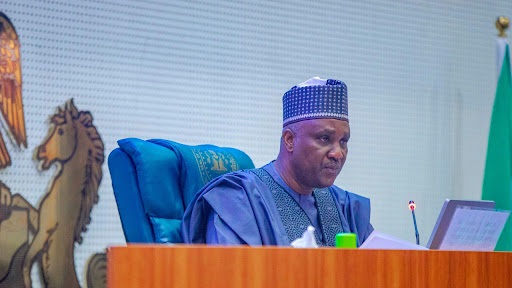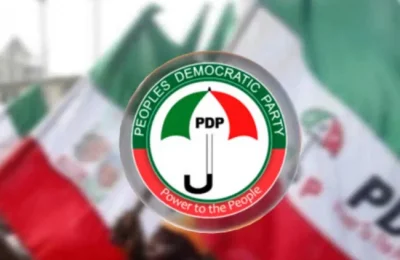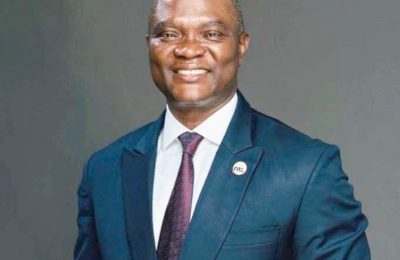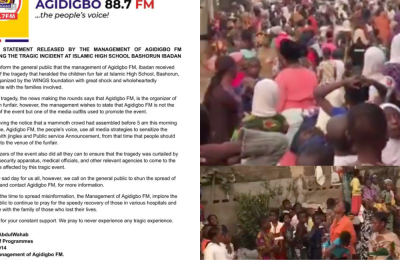•says Nigeria’s fiscal realities warrant critical reflection
The Speaker of the House of Representatives, Tajudeen Abbas, on Wednesday, pledged that the National Assembly would fully support the successful implementation of the 2025 budget as proposed by the executive for the betterment of Nigerians.
The Speaker gave the assurance in his vote of thanks; after the presentation of the 2025 Appropriation Bill to a joint session of the National Assembly by President Bola Ahmed Tinubu,
According to the Speaker, “This is not merely your budget; it is a national project requiring collaboration across all arms of government. We will work to ensure its timely passage, provide legislative support for critical reforms, and conduct robust oversight to guarantee transparency and efficiency in its execution.
“Mr. President, fellow colleagues, let us take a moment to recognise and honour the profound sacrifices made by each and every Nigerian over the past year. The removal of fuel subsidies, rising inflation, and adjustments to economic policies have created challenges.
“On behalf of the House of Representatives and the entire National Assembly, I extend our deepest gratitude to His Excellency, President Bola Ahmed Tinubu, GCFR, for presenting the 2025 Appropriation Bill to this Joint Session. Today’s presentation fulfils a fundamental constitutional mandate and reflects your vision and steadfast commitment to addressing the needs and aspirations of all Nigerians.
“Over the past eighteen months, your administration has taken bold and decisive steps to reform our economy. The removal of fuel subsidies, unification of foreign exchange rates, and introduction of innovative economic policies have laid a solid foundation for sustainable growth and development. While these reforms have demanded short-term sacrifices, they are acts of courage and patriotism. History teaches us that transformative progress often begins with difficult decisions. Examples from China’s market reforms, India’s liberalisation, and South Korea’s industrialisation affirm the enduring benefits of such bold action. These lessons inspire confidence that Nigeria’s ongoing reforms will foster economic growth, reduce poverty, and ensure long-term prosperity.
“Mr. President, your administration’s reforms have disrupted the status quo, sparking resistance from vested interests. Yet, these courageous measures underscore your resolve to prioritise the welfare of Nigerians. The National Assembly stands ready to support these reforms through legislative backing and to facilitate public engagement for greater understanding and acceptance. Collaboration between all arms of government remains essential to achieving our shared objectives.
“Your Excellency, 2024 has been a year of mixed economic fortunes. The National Bureau of Statistics reported GDP growth of 3.46% in the third quarter, up from 3.19% in the second, largely driven by the services sector. Despite challenges posed by climate change and insecurity, agriculture remained a critical contributor, accounting for 17.22% of nominal GDP in the first quarter and 22.61% in the second quarter.
“However, inflation, rising to 33.88% in October, alongside escalating food and energy costs, continues to strain households across the country. Nonetheless, the International Monetary Fund’s projection of 3.2% growth for 2025 underscores a positive trajectory if reforms are sustained and structural issues addressed.”
This is just as he pointed out that the government needed to reflect on the fiscal realities of Nigeria’s economy, especially the budget-population ratio of the country when Nigeria is compared with other countries in Africa
He acknowledged that the President Tinubu administration had taken bold and decisive steps to reform the economy in the past 18 months, stressing that removing fuel subsidies, unifying foreign exchange rates, and introducing innovative economic policies have laid a solid foundation for sustainable growth and development.
Abbas stated that while these reforms have demanded short-term sacrifices, they are acts of courage and patriotism. He added that history has shown that transformative progress often begins with difficult decisions.
The speaker cited examples from China’s market reforms, India’s liberalisation, and South Korea’s industrialization which, he stated, affirm the enduring benefits of such bold action. “These lessons inspire confidence that Nigeria’s ongoing reforms will foster economic growth, reduce poverty, and ensure long-term prosperity,” he stated.
He also stated that the Tinubu administration’s reforms have “disrupted the status quo, sparking resistance from vested interests,” noting that, “Yet these courageous measures underscore your resolve to prioritise the welfare of Nigerians.”
The Speaker noted that the proposed 2025 budget of N49.7 trillion— a 35 percent increase over 2024— is “ambitious and commendable.” He also said the projections of 4.6 percent Gross Domestic Product (GDP) growth, a crude oil price of $75 per barrel, an exchange rate of N1,400 to the dollar, and oil production of 2.06 million barrels per day are bold but achievable.”
According to him, “However, Nigeria’s fiscal realities warrant critical reflection. Despite being Africa’s most populous nation with over 220 million people, our 2024 national budget of $36.7 billion remains modest compared to countries like South Africa, with a budget of $160 billion for its 60 million citizens; Egypt, with $110 billion for 110 million people; Algeria, with $60 billion for 45 million people; and Morocco, allocating $50 billion for its 37 million residents.
While stating that stabilising prices, boosting agricultural productivity, expanding infrastructure, and investing in education, healthcare, and security “remain paramount priorities,” Speaker Abbas added that to strengthen national unity and build trust, it is essential for the government to communicate its achievements effectively to the Nigerian people.
According to. him, “The agreements from your September 2024 visit to China are set to transform rail transport, enhance digital literacy, boost agriculture, and strengthen national security while elevating Nigeria-China relations to a comprehensive strategic partnership. Engagements in France similarly secured €300 million for critical sectors, while Brazil’s $4.2 billion grant to strengthen agriculture underscores your focus on sustainable growth.
“Notably, one of your administration’s remarkable achievements is advancing local government autonomy, ensuring that resources reach grassroots communities and empowering them to address their specific needs. This commitment to transparency and accountability will have a lasting impact, particularly on our rural communities.
“Your Excellency, the proposed 2025 budget of N49.7 trillion—a 35% increase over 2024—is really ambitious and commendable.
“The projections of 4.6% GDP growth, a crude oil price of $75 per barrel, an exchange rate of N1,400 to the dollar, and oil production of 2.06 million barrels per day are bold but achievable.
“However, Nigeria’s fiscal realities warrant critical reflection. Despite being Africa’s most populous nation with over 220 million people, our 2024 national budget of $36.7 billion remains modest compared to countries like South Africa, with a budget of $160 billion for its 60 million citizens; Egypt, with $110 billion for 110 million people; Algeria, with $60 billion for 45 million people; and Morocco, allocating $50 billion for its 37 million residents.
“Indeed, Nigeria’s low tax revenue also remains a major constraint. Our tax-to-GDP ratio, currently at approximately 10.9% for 2024, is among the lowest in Africa, significantly below the continental average of 15.6%. In comparison, South Africa’s tax-to-GDP ratio stands at 25.4%, while Rwanda and Ghana, with much smaller populations, report ratios of 15.1% and 14.1%, respectively.
“Even our VAT collection efficiency – at approximately 20% – is notably below the near 70% efficiency achieved by South Africa, Equatorial Guinea, and Zambia.
“Addressing these challenges requires urgent and comprehensive tax reforms to broaden our tax base, improve compliance, streamline administration and reduce reliance on borrowing.
“The National Assembly will continue to work with your administration to ensure that such reforms are equitable, effective, and considerate of the needs of vulnerable populations.
“To this end, we have engaged stakeholders to address concerns raised on the tax reform bills, fostering trust and cooperation. I have personally led numerous high-level meetings and consultations with state governors and other key stakeholders on this issue, achieving positive outcomes.”
While commending the leadership roles of President Tinubu, he said, “Mr President, thank you for your visionary leadership and unwavering commitment to Nigeria’s progress. The 2025 budget represents a crucial step towards economic recovery and sustainable development. I am confident your reforms will soon deliver tangible benefits for all Nigerians.”
ALSO READ FROM NIGERIAN TRIBUNE
Tinubu presents N47.90trn 2025 budget estimates, eyes N34.82trn revenue







